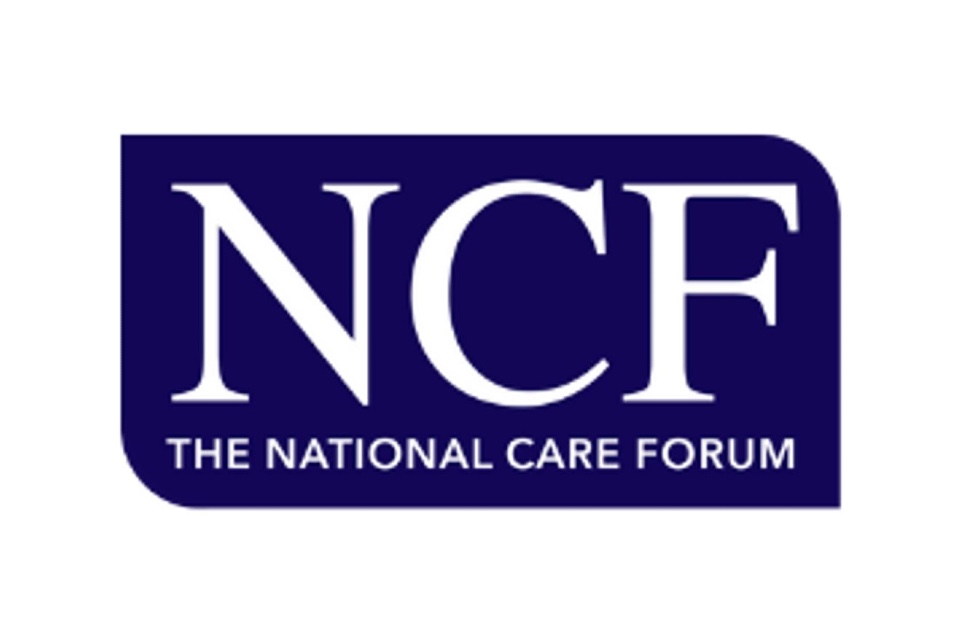The National Care Forum (NCF) has hosted a roundtable in conjunction with the Health Service Journal (HSJ) to bring together key strategic leaders across health and social care to create shared solutions to winter pressures.
The roundtable centred on several key themes that NCF’s not-for-profit provider membership believes would improve system-wide partnership working to ensure people are enabled to return to, and remain in, a place they call home more quickly, with the appropriate support and rehabilitation in place. This includes:
• The need for diversity of services to help people stay out of hospital;
• A multi-disciplinary approach which joins up the adult social care and health workforce to ensure that training and delegated healthcare interventions are utilised and enable people to get the care and support they need, when they need it;
• An effective use of technology and data to lead improvements in the quality of care and enable more integration;
• Recognition of adult social care providers as key strategic voices in the systems to foster sustainable and partnership-oriented commissioning approaches;
• Recognition that people and their families need to be involved in the development of services which they access;
• A sustainable approach to commissioning which works with providers and people to ensure that services receive the investment they need and are designed with people at their heart.
Following the roundtable, health and care thinktank, the Nuffield Trust, have written a long read summarising their recommendations on the steps to be taken in preparation for next winter and beyond. They argue that some level of certainty has been afforded through funding allocations for discharge over the next two years, and that this move away from sporadic emergency funding will need to continue. Discharge funding should move to a more systematic year-round approach – allocated in advance to support long-term planning.
The long read also describes how things are in a slightly better position than last year in terms of supporting people coming out of hospital, with positive examples of more collaborative working between ICSs, local authorities and care providers, even if improvements have not been felt uniformly across the country.
The attendees were clear that improving discharge would require moving away from silos to develop a whole view of need, capacity and provision across the entire system – with the person and family at the centre. The long read also recommends an overarching and long-term focus on prevention, with health and care providers working together with shared trust, vision and purpose.
Speaking after the roundtable, Professor Vic Rayner, CEO of NCF said: “Every winter the nation is reminded of the immense pressure on the health and social care system and in previous years responses have been dominated by last minute, disjointed, attempts to direct resources and funding to alleviate pressure. We want to make a difference and know that we need to coordinate our efforts to make the system work. NCF initiated this roundtable to provide a springboard for further collaboration and discussion in the wider ICS environment and though we’re yet to find solid solutions, we have firmly established the need for social care providers to be involved in decision making by system leaders. We are delighted to be working with the Nuffield Trust and urge all system leaders, ministers and policymakers, and our health and adult social care colleagues, to embrace their recommendations. By working together and taking the steps they suggest now, we can make sure that this winter people receive the health and care they need, when they need it.”
The Nuffield Trust’s Camille Oung, the long read’s author, said: “The roundtable was a welcome opportunity to bring together leaders from across the health and social care system to discuss the improvements that are needed to help better prepare services to discharge people from hospitals next winter. For too long, governments have dealt with hospital discharge problems through emergency funding, which has meant a continuation of problematic siloed approaches. There is an opportunity now to build a shared vision based on trust and mutual understanding of each other’s strengths to make improvements for the long term – and help ensure that people access the right care and support whenever they may need it.”
Image by InspiredImages from Pixabay







